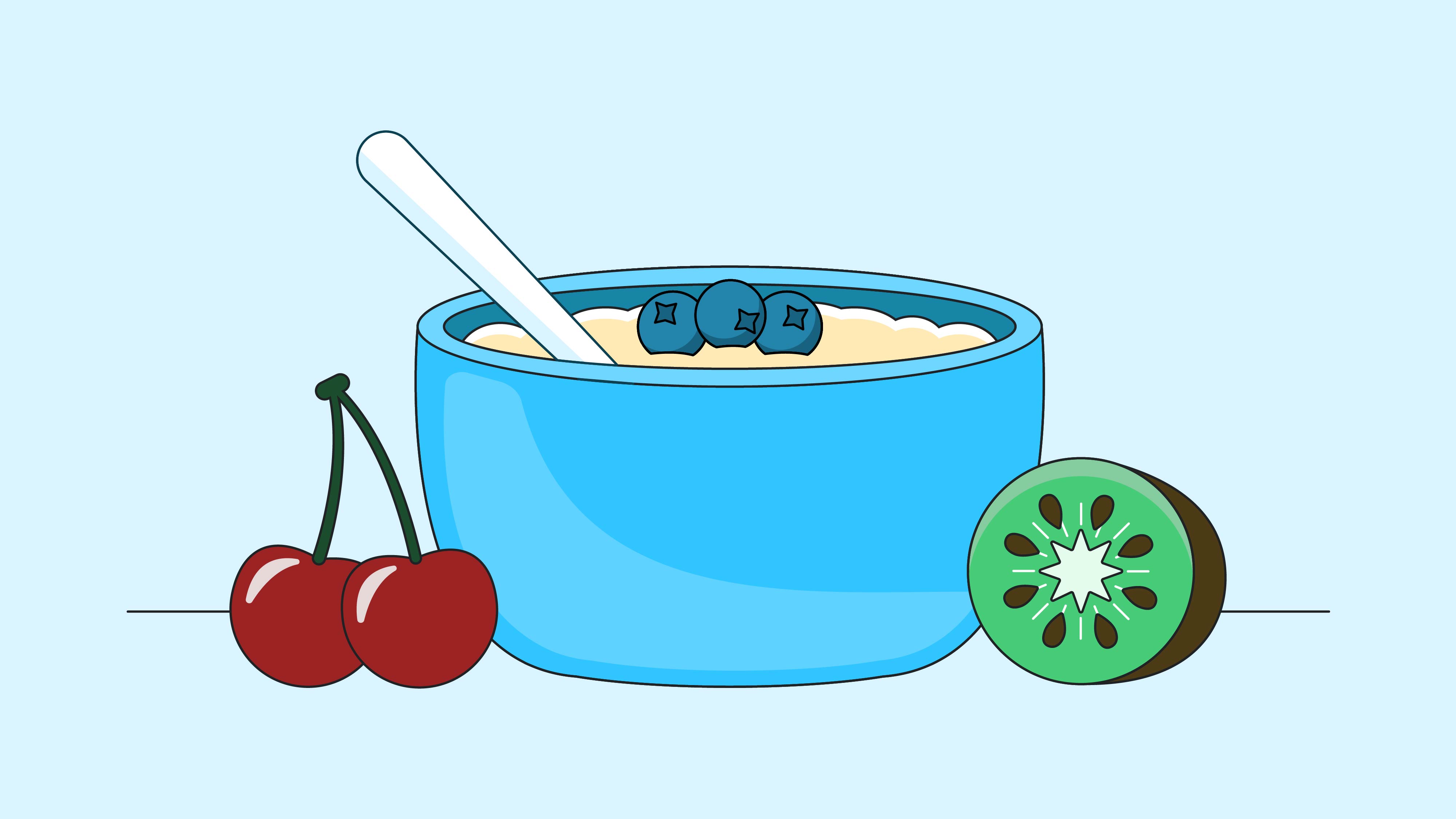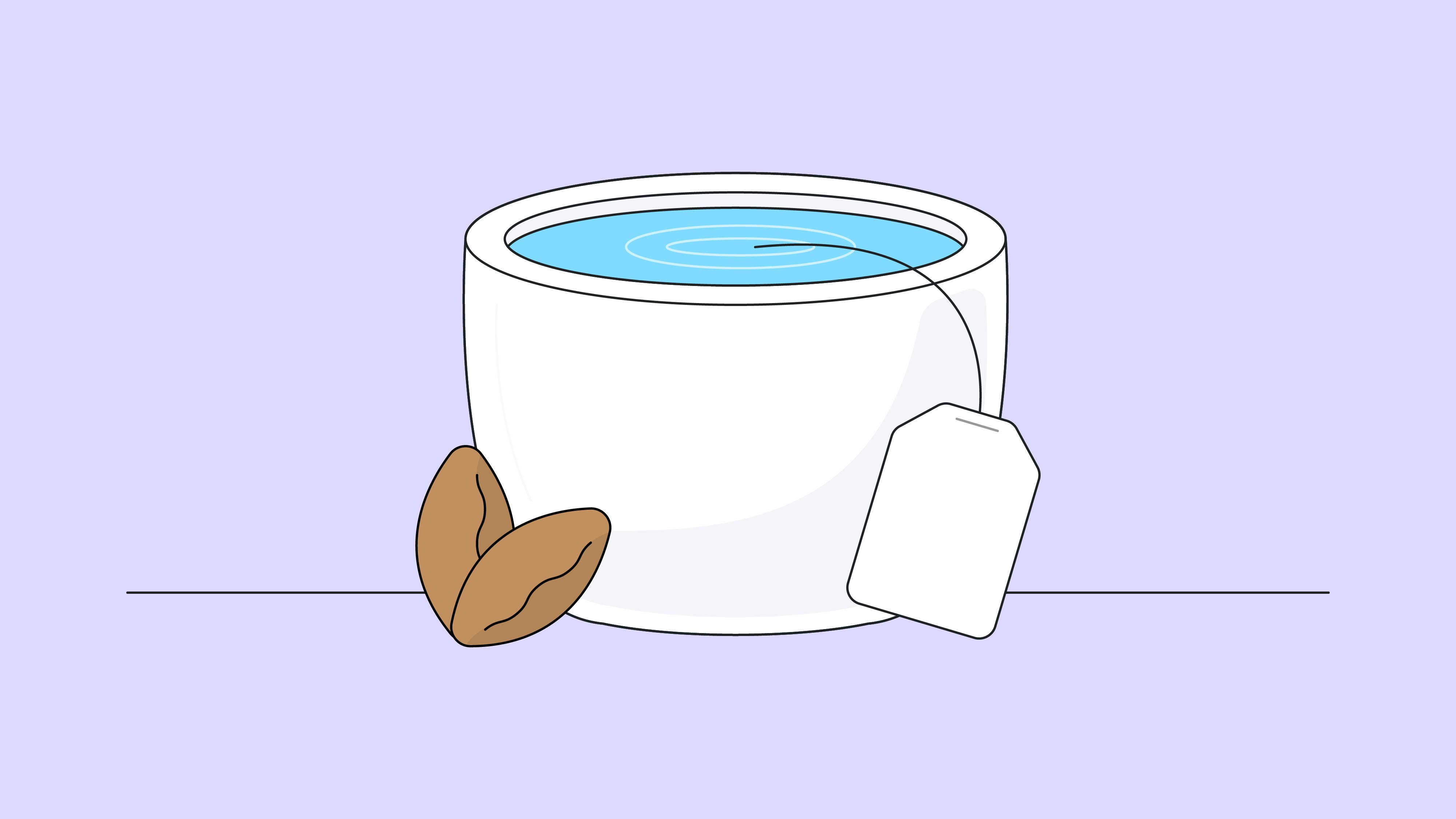8 Best Foods to Promote Better Sleep
Brittany Ford, RHN
Brittany Ford is certified as a holistic nutritionist by the Canadian School of Natural Nutrition (CSNN). She also hosts the Biohacking with Brittany podcast. In her practice, Brittany focuses on improving gut health and troubleshooting skin problems through diet.
- Incorporating sleep-promoting foods such as kiwi, tart cherry, and oatmeal into your diet can positively impact sleep quality, as these foods contain essential nutrients like melatonin, serotonin, and antioxidants that help regulate sleep-wake cycles and improve overall sleep duration.
- Consuming protein-rich foods like cottage cheese and fatty fish such as salmon can contribute to the production of tryptophan and serotonin, aiding in the synthesis of melatonin, which is crucial for inducing and maintaining a restful sleep.
- Herbal options such as chamomile tea and almonds, which are rich in antioxidants and magnesium, can help relax the body and mind, thereby promoting a sense of calm and easing the transition into sleep.
When looking to improve your quality of sleep, diet is a great place to start. Avoiding certain foods near bedtime, such as caffeine and cheeseburgers, is helpful; but incorporating some of the best foods for sleep into your diet can jumpstart you towards a better night’s sleep and, ultimately, an overall healthier life.
Changing up your diet can help you sleep better, but it is also not the easiest thing to do. To start, we recommend incorporating healthy snacks into your day-to-day and changing up dinner options. Eating before bed can be a slippery slope, but you won’t end up restless if you stick to the right foods. To make the transition easier, we’ve compiled this guide of the best foods to promote a better night’s sleep.
1. Kiwi
Kiwis are rich in Vitamin C, antioxidants and serotonin, making them an excellent bedtime snack. One kiwi only contains 50 calories and 117% of your daily Vitamin C allowance—more Vitamin C than an entire orange. A clinical study conducted on the relationship between kiwis and quality of sleep found eating two kiwis before bed can help you fall asleep faster and stay asleep longer.

2. Oatmeal
When eating grains before bed, it’s best to choose whole grains or oatmeal, instead of white bread or refined pasta. This is because whole grains trigger a lower insulin response, avoiding the high sugar spike and crash that comes from refined grains. Additionally, because oats are a great source of melatonin (the major sleep hormone), a bowl of oatmeal before bed can help you fall asleep faster.
3. Tart Cherry
Tart cherries serve as an excellent natural source of melatonin, antioxidants, and can even increase the availability of tryptophan in your body. Drinking a glass of tart cherry juice before bed can stimulate the release of melatonin in your body and make you feel sleepy. A study on tart cherry juice found drinking a glass in the mornings and evenings can promote more restful sleep and even treat insomnia.
4. Cottage Cheese
Cottage cheese is rich in lean protein, containing approximately 24 grams per cup. Lean protein is an excellent source for tryptophan, an amino acid commonly associated with turkey dinner that promotes sleepiness. Tryptophan can also induce the production of serotonin, directly impacting the levels of melatonin in your body.
5. Salmon
Fatty fish, such as salmon, are great sources of Vitamin D and Omega-3 fatty acids—both of which increase the production of serotonin. Salmon specifically has a high content of Vitamin D, which has been related to better sleep. Serotonin is important because it synthesizes melatonin, the sleep-inducing hormone. Ensuring you have adequate levels of serotonin can help you live healthier and improve sleep quality.
6. Bananas
Because they contain tryptophan, magnesium, and potassium, eating a banana before bed can help you fall asleep faster. In addition to the variety of sleep-inducing properties, magnesium and potassium are both natural muscle relaxants, helping your body unwind by promoting a sense of calm. Banana nut muffins are a quick bedtime snack that combines the sleep-promoting properties of bananas, almonds, and whole grain flour.
7. Chamomile Tea
Chamomile tea is packed with antioxidants, specifically one called apigenin. Apigenin is an antioxidant that binds to receptors in your brain to promote drowsiness. Doctors will recommend individuals with insomnia eat foods packed with apigenin to combat insomnia naturally. The antioxidants in chamomile tea also reduce inflammation throughout your body, boost your immune system, and reduce your risk of anxiety. A clinical study on chamomile tea found consuming some before bed can help you sleep better throughout the night and fall asleep faster.

8. Almonds
Almonds are rich in magnesium and melatonin and offer a wide variety of health benefits; they can lower your risk for chronic diseases and boost your quality of sleep. One ounce of almonds contains about 75 mg of magnesium, known to improve sleep quality. A clinical study even found consuming almonds every day can help combat insomnia.
How Foods Promote Sleep
It’s easy to read an article and make a list of foods to try, but understanding how these foods actually promote sleep can help you modify your diet in your own way. Foods that are a good source of melatonin and serotonin help you fall asleep, while foods rich in magnesium and antioxidants help you stay asleep.
Melatonin
Melatonin is a hormone released by your pineal gland that helps keep your circadian rhythm (otherwise known as your biological clock) on track, controlling when you fall asleep and when you wake up. Near bedtime, your body produces more melatonin to make you sleepy, and in the mornings your melatonin levels are at their lowest.
It’s easy to find melatonin supplements over the counter, but because the safety of sleep aids and melatonin supplements are still “to be determined,” we recommend skipping these and finding natural sources of the hormone instead.
Serotonin
Serotonin is an essential chemical in your body that plays a role in a wide variety of processes, from mood and appetite regulation to creating melatonin to help you sleep. Unhealthy levels of serotonin have been linked to mood disorders such as depression and high levels of stress. Additionally, because melatonin is made from serotonin, unhealthy serotonin levels can be the cause of a poor night’s sleep.
Magnesium
Magnesium, one of the most common minerals on earth, but also the most common mineral deficiency today, has been linked to treating sleep disorders such as insomnia. Some consider magnesium to be a natural sedative due to its sleep-inducing properties. The presence of magnesium in the body activates the parasympathetic nervous system, calming your mind and body. It also binds to the GABA neurotransmitter receptor; this receptor calms nerve activity to help you sleep soundly.
Antioxidants
Antioxidants are known to support your immune system, fighting off free radicals and inflammation, they play a significant role in improving cellular functions. This “clean-up” process initiated by the presence of antioxidants requires a lot of energy from the body and can cause you to feel sleepy. In addition to making you feel sleepy, antioxidants also combat restlessness at night by restoring your body’s equilibrium. Fruits such as blueberries, blackberries, pomegranates, and grapes are a great source of antioxidants and easy to incorporate into your diet as a snack throughout the day.
Overview of Best Foods for Sleep
Incorporating these foods into your diet is an easy step towards better rest. However, when building healthy recipes around sleep-enhancing foods, note the other ingredients you’re adding to your meal and specifically avoid sugar. For example, a cherry pie will not have the same sleep-promoting benefits as cherry juice from concentrate.
Writing in a sleep journal is a great way to keep track of when you’ve tried these foods and how they’ve impacted your sleep. We encourage you to document how your sleep has improved to pinpoint which foods have been the most helpful.
Keep in mind, this article only includes eight suggestions; in addition to the foods mentioned on this list, there are a number of other bedtime teas and healthy foods in the market that promote better sleep. If you’ve found this guide helpful, or alternatively, the foods we mentioned do not work for you, we encourage you to look into some other night time snacks to add to your diet.
“When trying these foods, avoid overconsumption of any of them, as too much food before bed can cause digestive problems, blood sugar dysregulation and further sleep problems,” says registered health nutritionist Brittany Ford. “Try one banana before bed and see how your sleep is, before trying a few banana nut muffins. A little goes a long way. It’s also important to remember the timing of eating your last meal or snack. Some people do best with no food two hours before bed, and others can eat within 30 minutes of going to bed with no issues. Experiment, and see what works best for you. Everyone has a different biological response, so what works for you, may not work for someone else.”

Comments (1) Leave a reply
known to sleep for 18hrs. But it takes forever to fall asleep